stdClass Object
(
[nazev] => Faculty of Environmental Technology
[adresa_url] =>
[api_hash] =>
[seo_desc] =>
[jazyk] =>
[jednojazycny] =>
[barva] => zelena
[indexace] => 1
[obrazek] =>
[ga_force] =>
[cookie_force] =>
[secureredirect] =>
[google_verification] =>
[ga_account] =>
[ga_domain] =>
[ga4_account] => G-VKDBFLKL51
[gtm_id] =>
[gt_code] =>
[kontrola_pred] =>
[omezeni] => 0
[pozadi1] => VSCHT_fotobanka_065.jpg
[pozadi2] => 5_DSC0153.jpg
[pozadi3] =>
[pozadi4] =>
[pozadi5] =>
[robots] =>
[htmlheaders] =>
[newurl_domain] => 'ftop.vscht.cz'
[newurl_jazyk] => 'en'
[newurl_akce] => '[en]'
[newurl_iduzel] =>
[newurl_path] => 8547/4161/1398
[newurl_path_link] => Odkaz na newurlCMS
[iduzel] => 1398
[platne_od] => 31.10.2023 10:52:00
[zmeneno_cas] => 31.10.2023 10:52:05.465447
[zmeneno_uzivatel_jmeno] => Jan Kříž
[canonical_url] =>
[idvazba] => 1707
[cms_time] => 1713439976
[skupina_www] => Array
(
)
[slovnik] => stdClass Object
(
[logo] =>  [top_search_placeholder] => Alumni profiles
[social_fb_odkaz] => https://www.facebook.com/VSCHTFTOP/
[social_tw_odkaz] =>
[social_yt_odkaz] =>
[paticka_budova_a_nadpis] => BUILDING A
[paticka_budova_a_popis] => Rector,
Department of Communications,
Department of Education,
FCT Dean’s Office,
Centre for Information Services
[paticka_budova_b_nadpis] => BUILDING B
[paticka_budova_b_popis] => Department of R&D, Dean’s Offices:
FET,
FFBT,
FCE,
Computer Centre,
Department of International Relations,
Bursar
[paticka_budova_c_nadpis] => BUILDING C
[paticka_budova_c_popis] => Crèche Zkumavka,
General Practitioner,
Department of Economics and Management,
Department of Mathematics
[paticka_budova_1_nadpis] => NATIONAL LIBRARY OF TECHNOLOGY
[paticka_budova_1_popis] =>
[paticka_budova_2_nadpis] => CAFÉ CARBON
[paticka_budova_2_popis] =>
[paticka_adresa] => UCT Prague
[top_search_placeholder] => Alumni profiles
[social_fb_odkaz] => https://www.facebook.com/VSCHTFTOP/
[social_tw_odkaz] =>
[social_yt_odkaz] =>
[paticka_budova_a_nadpis] => BUILDING A
[paticka_budova_a_popis] => Rector,
Department of Communications,
Department of Education,
FCT Dean’s Office,
Centre for Information Services
[paticka_budova_b_nadpis] => BUILDING B
[paticka_budova_b_popis] => Department of R&D, Dean’s Offices:
FET,
FFBT,
FCE,
Computer Centre,
Department of International Relations,
Bursar
[paticka_budova_c_nadpis] => BUILDING C
[paticka_budova_c_popis] => Crèche Zkumavka,
General Practitioner,
Department of Economics and Management,
Department of Mathematics
[paticka_budova_1_nadpis] => NATIONAL LIBRARY OF TECHNOLOGY
[paticka_budova_1_popis] =>
[paticka_budova_2_nadpis] => CAFÉ CARBON
[paticka_budova_2_popis] =>
[paticka_adresa] => UCT Prague
5 Technická
166 28 Prague 6 – Dejvice
IČO: 60461337
VAT: CZ60461373
Data mail: sp4j9ch
Copyright UCT Prague 2017
Informations provided by Department of International Relations, Department of R&D, technical service by Computer Centre
[paticka_odkaz_mail] => maitlo:top@vscht.cz
[social_fb_title] => Facebook FET UCT Prague
[social_tw_title] =>
[social_yt_title] =>
[logo_href] => /?jayzyk=en
[google_search] => 001523547858480163194:u-cbn29rzve
[aktualizovano] => Updated
[autor] => Author
[zobrazit_kalendar] => Read Calendar
[drobecky] => You are here: UCT Prague – FET
[archiv_novinek] => News archive
[submenu_novinky_rok_title] => News from the year.
[paticka_mapa_alt] =>
[studijni_plan_povinne_predmety] => Obligatory Subject
[studijni_plan_volitelne_predmety] => Optional Subject
[api_obor_druh_B] => Bachelor's degree
[charakteristika] => Profile of the programme
[vice] => more
[navaznosti] => Continue to
[uplatneni] => Alumni profiles
[vyucuje_se_na_ustavech] => Departments
[studijni_plan] => Complete curriculum
[mene] => less
[api_obor_druh_N] => PhD degree
[api_obor_druh_D] => Master's degree
[zobrazit_vice_kalendar] => More →
[den_kratky_3] => Wed
[novinky_kategorie_1] => UCT Events
[novinky_kategorie_2] => Important Dates
[novinky_kategorie_3] => Student Events
[novinky_kategorie_4] => Fun
[novinky_kategorie_5] => Science
[novinky_archiv_url] => /news
[novinky_servis_archiv_rok] => Annual Archive
[novinky_servis_nadpis] => News Settings
[novinky_dalsi] => More News
[intranet_odkaz] => http://intranet.vscht.cz/
[intranet_text] => Intranet
[logo_mobile_href] => /?jayzyk=en
[logo_mobile] =>  [mobile_over_nadpis_menu] => Menu
[mobile_over_nadpis_search] => Search
[mobile_over_nadpis_jazyky] => Languages
[mobile_over_nadpis_login] => Login
[menu_home] => Homepage
[zobraz_desktop_verzi] => switch to desktop version
[zobraz_mobilni_verzi] => switch to mobile version
[fakulta_FPBT_odkaz] => https://fpbt.vscht.cz/
[fakulta_FPBT] => Fakulta potravinářské a biochemické technologie
[fakulta_FTOP_odkaz] => https://ftop.vscht.cz/
[fakulta_FTOP] => Fakulta technologie ochrany prostředí
[paticka_mapa_odkaz] => /faculty/contact
[nepodporovany_prohlizec] => For full access, please use different browser.
[preloader] => Wait a second...
[hledani_nadpis] => hledání
[hledani_nenalezeno] => Nenalezeno...
[hledani_vyhledat_google] => vyhledat pomocí Google
[social_in_odkaz] =>
[social_li_odkaz] =>
[den_kratky_1] =>
[novinky_archiv] =>
[stahnout] =>
[den_kratky_5] =>
[den_kratky_4] =>
[dokumenty_kod] =>
[dokumenty_nazev] =>
[dokumenty_platne_od] =>
[dokumenty_platne_do] =>
)
[poduzel] => stdClass Object
(
[4568] => stdClass Object
(
[obsah] =>
[poduzel] => stdClass Object
(
[4572] => stdClass Object
(
[nazev] => Faculty of Environmental Technology
[seo_title] => Faculty of Environmental Technology
[seo_desc] =>
[autor] =>
[autor_email] =>
[obsah] => (Page under construction)
The study programmes at the Faculty of Environmental Technologies are designed for students who wish to:
[mobile_over_nadpis_menu] => Menu
[mobile_over_nadpis_search] => Search
[mobile_over_nadpis_jazyky] => Languages
[mobile_over_nadpis_login] => Login
[menu_home] => Homepage
[zobraz_desktop_verzi] => switch to desktop version
[zobraz_mobilni_verzi] => switch to mobile version
[fakulta_FPBT_odkaz] => https://fpbt.vscht.cz/
[fakulta_FPBT] => Fakulta potravinářské a biochemické technologie
[fakulta_FTOP_odkaz] => https://ftop.vscht.cz/
[fakulta_FTOP] => Fakulta technologie ochrany prostředí
[paticka_mapa_odkaz] => /faculty/contact
[nepodporovany_prohlizec] => For full access, please use different browser.
[preloader] => Wait a second...
[hledani_nadpis] => hledání
[hledani_nenalezeno] => Nenalezeno...
[hledani_vyhledat_google] => vyhledat pomocí Google
[social_in_odkaz] =>
[social_li_odkaz] =>
[den_kratky_1] =>
[novinky_archiv] =>
[stahnout] =>
[den_kratky_5] =>
[den_kratky_4] =>
[dokumenty_kod] =>
[dokumenty_nazev] =>
[dokumenty_platne_od] =>
[dokumenty_platne_do] =>
)
[poduzel] => stdClass Object
(
[4568] => stdClass Object
(
[obsah] =>
[poduzel] => stdClass Object
(
[4572] => stdClass Object
(
[nazev] => Faculty of Environmental Technology
[seo_title] => Faculty of Environmental Technology
[seo_desc] =>
[autor] =>
[autor_email] =>
[obsah] => (Page under construction)
The study programmes at the Faculty of Environmental Technologies are designed for students who wish to:
• study a field that represents an interdisciplinary synthesis of technical chemistry, ecology, biological sciences and sciences dealing with the living environment,
• get an insight into chemical technologies so as to be able to minimize pollution directly at its source,
• get a good grasp of the essence of advanced environmental protection technologies,
• develop a qualified engineering approach to the analysis and solution of problems relating to the living environment,
• understand the relation between technology, environmental pollution and environmental protection technology,
• design optimal solutions in specific cases of environmental pollution,
• acquire a sound knowledge of the basic legislation concerning the living environment,
• assert themselves in interesting and well paid jobs both in their home country and abroad.
Bachelor’s programme (eng):
Environmental Technology (in Czech), Chemistry and Technology (in English)
Master’s programmes (eng):
Environmental Technology (in Czech)
Environmental Technology and Engineering, Environmental Chemistry and Technology (in English)
PhD programmes:
Environmental Chemistry and Technology (in Czech)
Chemistry and Technology of Fuels and Environment (in Czech)
[urlnadstranka] =>
[ogobrazek] =>
[pozadi] =>
[iduzel] => 4572
[canonical_url] => //ftop.vscht.cz/home?jazyk=en
[skupina_www] => Array
(
)
[url] => /home
[sablona] => stdClass Object
(
[class] => stranka_novinky
[html] =>
[css] =>
[js] =>
[autonomni] => 1
)
)
[11701] => stdClass Object
(
[nazev] => About Faculty
[seo_title] => About Faculty
[seo_desc] =>
[autor] =>
[autor_email] =>
[obsah] => 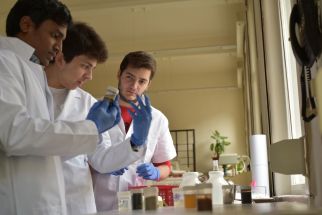 The Faculty of Environmental Protection Technology (FTOP) focuses on the issue of environmental protection. In 2019, FTO gained 2nd place in the "Faculty of the year" in the Chemistry category.
When studying at FTOP, students focus on natural science and technical subjects, thanks to which they will not get lost in the scientific or industrial sphere. The common basis with all faculties in the bachelor's fields will give students a broad general knowledge in the field of chemistry and technology, extended by the subjects of their specialization. In subsequent master's programs, students already devote themselves to their field according to specific requirements and interests. Emphasis is placed on both theoretical knowledge and practical connections, whether in our laboratories or on practice in the industry.
It is also possible to teach the master's program in Sustainability and Environmental Engineering in English or international cooperation with other European universities on the master's program IMETE or a double doctorate with universities in Belgium and France.
Graduates of our faculty find employment in various branches of industry, for example, chemical or petrochemical, and a wide range of employment is also found in the field of environmental protection. We also have graduates in analytical laboratories, inspection and control bodies, state administration, and research. Last but not least, it is worth mentioning that they are employed in project and consulting organizations or as technologists, specialists, or environmental managers. Notable graduates include, for example, Milan Smrž, author and co-author of dozens of professional publications and patents and vice-president of the European association EUROSOLAR, which strives for the complete replacement of fossil and nuclear sources with renewable ones, or Miroslav Kos, co-author of a whole range of technological solutions for WWTPs in the Czech Republic, including the New Prague Water Line, completed in 2019.
The study is also closely linked to witnessing work at all institutes, and students have the opportunity to participate in the solution of grant projects, which are subsequently used or implemented in industry, ministries, further research or take place in cooperation with foreign institutions.
The Faculty of Environmental Protection Technology (FTOP) focuses on the issue of environmental protection. In 2019, FTO gained 2nd place in the "Faculty of the year" in the Chemistry category.
When studying at FTOP, students focus on natural science and technical subjects, thanks to which they will not get lost in the scientific or industrial sphere. The common basis with all faculties in the bachelor's fields will give students a broad general knowledge in the field of chemistry and technology, extended by the subjects of their specialization. In subsequent master's programs, students already devote themselves to their field according to specific requirements and interests. Emphasis is placed on both theoretical knowledge and practical connections, whether in our laboratories or on practice in the industry.
It is also possible to teach the master's program in Sustainability and Environmental Engineering in English or international cooperation with other European universities on the master's program IMETE or a double doctorate with universities in Belgium and France.
Graduates of our faculty find employment in various branches of industry, for example, chemical or petrochemical, and a wide range of employment is also found in the field of environmental protection. We also have graduates in analytical laboratories, inspection and control bodies, state administration, and research. Last but not least, it is worth mentioning that they are employed in project and consulting organizations or as technologists, specialists, or environmental managers. Notable graduates include, for example, Milan Smrž, author and co-author of dozens of professional publications and patents and vice-president of the European association EUROSOLAR, which strives for the complete replacement of fossil and nuclear sources with renewable ones, or Miroslav Kos, co-author of a whole range of technological solutions for WWTPs in the Czech Republic, including the New Prague Water Line, completed in 2019.
The study is also closely linked to witnessing work at all institutes, and students have the opportunity to participate in the solution of grant projects, which are subsequently used or implemented in industry, ministries, further research or take place in cooperation with foreign institutions.
The Department of Sustainable Fuels and Green Chemistry
The Department of Sustainable Fuels and Green Chemistry focuses on several areas in its pedagogical and scientific-research activities. It deals with topics that currently resonate in public and professional discussion, such as: alternative fuels and biofuels, whether gaseous or liquid; implementation of green chemistry principles in the chemical industry or air protection and climate change. We focus in detail on the conversion of biomass and waste plastics into bio-liquids and their subsequent hydrogenation treatment, the development of heterogeneous catalysts, the application of hydrogen, biogas, and bio-methane in the gas industry, the capture of carbon dioxide in order to mitigate climate change and the monitoring of air pollution. Furthermore, at the department, we deal with innovations and optimizations in traditional areas, especially in oil technology and analysis.
Department of Water Technology and Environmental Engineering
deals with pedagogical and scientific-research activities in the field of drinking water treatment and wastewater treatment. During the course of study, students can participate in many research projects in the entire field of water technology: drinking water treatment, wastewater treatment, microbiology, energy production from wastewater and other materials, etc. terrain. The institute's activities are currently focused on current topics: reuse of water, reuse of materials and energy, use of information from wastewater, safe supply of drinking water, and digitalization of water management.
Department of Power Engineering
The scientific research activity can be divided into three basic areas of research: a) Corrosion and materials in the energy sector – research is focused on testing the corrosion behavior of new materials in existing and new energy technologies (refractory steels and alloys and their behavior in supercritical energy circuits, development protective layers for coating nuclear fuel (Accident Tolerant Fuel, etc.). b) Sorption processes and ion exchange in water treatment - applications are historically associated with the production of demineralized water for energy and industry. Professional interest gradually grew into the areas of environmental protection, hydrometallurgy, and the preparation of sorbents, their lifetime in real operating conditions. An example of the topics addressed is the removal of unwanted ions from contaminated sources of drinking water and waste and process waters. A lot of attention is paid especially to oxoanions and complex ions of toxic metals and semimetals. c) Energy and material use of biomass, alternative fuels, and waste - here the research is primarily focused on the thermochemical use of waste, solid alternative fuels, bio waste, biomass, and on the circular economy of products in energy, heating, and waste management. It mainly deals with current energy topics with the aim of greater use of renewable energy sources and alternative fuels and the issue of thermochemical conversions.
Department of Environmental Chemistry
as part of its pedagogical and research activities, it generally deals with current and very important issues of environmental protection. In a more detailed view, these activities can be divided into five areas of scope: technology for environmental protection, environmental sampling and analysis, toxicology and ecotoxicology, numerical simulation of environmental engineering processes, and environmental microbiology. The institute has spacious laboratories for practical teaching, modern equipment, qualified personnel, and traditionally excellent links with leading subjects from the institutional and applied sphere of technical environmental protection.
Department of Sustainability and Product Ecology
The pedagogical focus of the institute is based on the current social need to implement the principles of sustainability into practice. Our goal is to develop education in the field of sustainability, circular economy, product ecology, raw material safety, and other fields that are important for professionals focused on sustainability. The content of the professional and creative activities of the institute's employees is analytical work in the field of product and corporate sustainability. We conduct research focused on product ecology and ecodesign. Using analytical tools such as life cycle assessment (LCA) or material flow analysis (MFA), we determine the environmental aspects of products, services, technologies, and organizations.
[urlnadstranka] =>
[ogobrazek] =>
[pozadi] =>
[iduzel] => 11701
[canonical_url] =>
[skupina_www] => Array
(
)
[url] => /faculty
[sablona] => stdClass Object
(
[class] => stranka_submenu
[html] =>
[css] =>
[js] =>
[autonomni] => 1
)
)
[11699] => stdClass Object
(
[nazev] => Studies
[seo_title] => Studies
[seo_desc] =>
[autor] =>
[autor_email] =>
[obsah] =>
Forms of Study at the Faculty of Environmental Technology
|
The Faculty of Environmental Technology offers the following forms of study: |
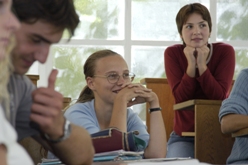 |
In five-year MSc study programs, the first three years of study are based on the core subjects which are common to all UCT faculties. The core subjects include mathematics, physics, general and inorganic chemistry, organic chemistry, analytical chemistry, physical chemistry, biochemistry, chemical engineering, and computer equipment. All UCT faculties require about the same extent of lectures, seminars, and laboratory practice in the core subjects.
In the subsequent two years of study, instruction is focused on the explanation of the principles of chemical and technological processes, and on expanding students' knowledge of these processes. The aim is to teach students how to apply theoretical knowledge of the core subjects to the solution of specific problems in technological practice and in creative research activities. The study of chemical technology is supplemented with subjects whose knowledge is considered inevitable for practice in the area of environmental protection and in the fuel processing industry.
The three-year BSc study program runs parallel to MSc study programs.
University graduates may apply, through a contest, for three-year Ph.D. study programs which are concluded with a state doctoral examination and the defense of a dissertation.
The presented survey lists all study programs and individual subprogrammes and fields of specialization taught at the Faculty. All subprogrammes taught within MSc study programs are accredited by the Federation of European National Associations of Engineers (FEANI), which allows for the award of the title Eur.Ing.
The Faculty has currently about 450 students in MSc study programs and 100 Ph.D. students.
[urlnadstranka] => [ogobrazek] => [pozadi] => [iduzel] => 11699 [canonical_url] => [skupina_www] => Array ( ) [url] => /studies [sablona] => stdClass Object ( [class] => stranka [html] => [css] => [js] => [autonomni] => 1 ) ) [65559] => stdClass Object ( [nazev] => Departments [seo_title] => Departments [seo_desc] => [autor] => [autor_email] => [obsah] =>The Faculty of Environmental Protection Technology (FTOP) focuses on the issue of environmental protection. The study is closely linked to witnessing work at individual departments, and students have the opportunity to participate in the solution of grant projects, which are subsequently used or implemented in industry, ministries, further research or take place in cooperation with foreign institutions. The faculty consists of a total of six departments:
Department of Sustainable Fuels and Green Chemistry
The Department of Sustainable Fuels and Green Chemistry focuses on several areas in its pedagogical and scientific research activities. It deals with topics that currently resonate in public and professional discussion, such as alternative fuels and biofuels, whether gaseous or liquid; implementation of green chemistry principles in the chemical industry or air protection and climate change. We focus in detail on the conversion of biomass and waste plastics into bio-liquids and their subsequent hydrogenation treatment, the development of heterogeneous catalysts, the application of hydrogen, biogas, and bio-methane in the gas industry, the capture of carbon dioxide to mitigate climate change and the monitoring of air pollution. Furthermore, at the department, we deal with innovations and optimizations in traditional areas, especially in oil technology and analysis.
Department of Water Technology and Environmental Engineering
Department of Power Engineering
Department of Environmental Chemistry
Department of Sustainability and Product Ecology
Current Research at the Faculty of Environmental Technology
From the historical point of view, the scientific and research activity at the Faculty of Environmental Technology derives from its original name, the Faculty of Fuel and Water Technology. The two basic ranges of scientific and research activity, which are closely linked and which supplement each other, embrace the processing and utilisation of individual kinds of fossil fuels on the one hand and environmental chemistry and technology on the other. The Faculty's scientific and research objectives are closely linked with its teaching activity.
Chemistry and Technology of Fuels
- Development of analytical methods for detailed evaluation of the chemical composition and structure of coal, petroleum, petroleum fractions and of by-products obtained during their processing.
- Ways to utilise and process high-boiling petroleum fractions and residues.
- Determination of qualitative and quantitative parameters of natural gas.
- Development of environment-friendly solid fuels for the household.
- Research into corrosion inhibition and materials assessment.
Environmental Chemistry and Technology
- Properties and utilisation of fuels and related ecological aspects.
- Lubricants, additives for lubricants, and biodegradable lubricants.
- Catalytic and adsorption methods of waste gas treatment, reduction of emissions in the combustion of fossil fuels.
- Development of coal-based adsorption materials.
- Analysis of contaminants in the living environment, monitoring of emissions of volatile organic substances into the atmosphere.
- Biotechnological ways of wastewater treatment and sludge processing.
- Biodegradation of xenobiotics in the environment.
- Hydrobiological and microbiological assessment of water quality.
- Assurance of good-quality drinking water for the population (removal of nitrogenous substances and organic contaminants).
- Water treatment and desalination and recycling of rare substances using ion exchangers.
- Decontamination of soil polluted by industrial products.
- Analysis of old-burden contaminants and monitoring of their changes and toxicity.
- Solidification of industrial waste.
The Faculty of Environmental Technology research programmes are supported by national and international grant agencies. They reflect the current development and scientific trends. The Faculty of Environmental Technology research workers are recognised experts in all the above areas of research.
Popularization
[urlnadstranka] => [ogobrazek] => [pozadi] => [iduzel] => 65550 [canonical_url] => [skupina_www] => Array ( ) [url] => /popularization [sablona] => stdClass Object ( [class] => stranka_novinky [html] => [css] => [js] => [autonomni] => 1 ) ) [65551] => stdClass Object ( [nazev] => [seo_title] => Contact [seo_desc] => [autor] => [autor_email] => [obsah] =>Dean
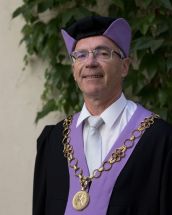 |
prof. Ing. Pavel Jeníček, CSc.
|
Correspondence address:
Technická 5
166 28 Praha 6 - Dejvice
Dean's office
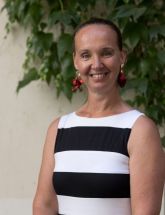 |
Faculty secretary, doctoral studiesIng. Kateřina Šritrová room B2315 |
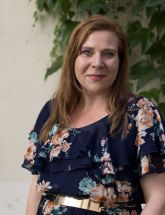 |
Bachelor's and Master's studiesŠárka Dintarová room B2316 |
Office Hours:
|
Monday: |
9:00–11:00 |
|
|
Tuesday: |
zavřeno |
|
|
Wednesday: |
9:00–11:00 |
14:00–15:00 |
|
Thursday: |
9:00–11:00 |
|
|
Friday: |
zavřeno |
|
DATA
stdClass Object
(
[nazev] => Research activities: Department of Power Engineering
[seo_title] => Research activities: Department of Power Engineering
[seo_desc] =>
[autor] =>
[autor_email] =>
[obsah] =>
In the past the research activities of the Department of Power Engineering were focused on segments of production of water serving as a medium for power generation (especially using ion exchangers) and corrosion phenomena in power engineering. Nowadays, the traditional research interests were shifted more towards environmental matters: usage of ion exchangers and other sorbents for specific removal of heavy metals and other contaminants from water, water treatment using membrane processes, material science including corrosion phenomena, alternative source of energy and heat. The research projects of the Department are closely connected with practice and are solved in collaboration with research institutions in Czech Republic and abroad.
Present research
In the field of water treatment the Department is involved in the following areas: selective removal and recovery of metal cations and oxoanions from contaminated water, utilization of biosorbents and composite sorbents in water treatment, recovery of metal values from waste waters via combination of electrochemical and ion exchange methods. Desalination of water using membranes and ion exchangers is also investigated. Attention is also paid to degradation of ion exchangers (total and breakthrough capacities, grain size analysis, pressure drop across the column) during their life-cycle. For the analysis of heavy metals the Department possesses excellent tools: ion coupled plasma and for the analysis of anions ionic chromatography instruments, respectively.
Research in biomass and waste fuel field is focused on efficient chemical energy release, its recovery and GHG´s emission reduction. Physical and chemical properties of fytomass residues other than wood are evaluated as an alternative fuel option with the potential to replace petroleum and natural gas fuels for domestic heating. Due to its potential in replacing landfilling option the properties of waste fuels are studied with the aim to understand the behavior of fuel and ash under wide range of conditions. Collaboration on the evaluation of the behaviors of the biomass/waste components in inert and oxidative atmosphere particularly for nonconventional fuels, processing byproducts and various wastes is offered including expertise use of analytical methods XRF, DSC-TGA and bomb combustion calorimetry in fuel R&D.
In the field of corrosion research, the activities of Department are currently focused on study of formation and properties of corrosion layers formed on nuclear fuel cladding under conditions of primary circuit of pressurized water reactor (PWR), corrosion protective properties of physical vapour deposition (PVD) coatings, environment-friendly corrosion inhibitors development, corrosivity and corrosion protection in air-conditioning systems, corrosivity and electric properties characterization of liquid alcohol-based biofuels. As an important research tool, electrochemical techniques and surface analysis techniques are applied. New methodological approach is developed including such techniques like Micro Electrochemical Impedance Spectroscopy (MEIS), Acoustic Emission (AE), Electron Spectroscopy for Chemical Analysis (ESCA) and Thin-Layer Electrochemical Impedance Spectroscopy (TLEIS). The Department is equipped with electrochemical measuring systems, autoclaves, experimental loops and loading machines and has possibility to use surface analysis techniques of Central Laboratories of Institute of Chemical Technology, Prague (XPS, SEM etc).
Expected future orientation
• Preparation of highly selective polymeric and composite sorbents.
• Design and application of low-waste ion exchange and hybrid technologies for metal recovery from waste waters.
• Study and modelling of degradation of ion exchangers and polymeric sorbents.
• Biomass and waste fuel pretreatment paths and methods for modification of waste biomass fuels before combustion.
• Mitigation of superheater corrosion in a high pressure boiler during combustion of fuels other than currently used woody biomass.
• Better control of alkalis, chlorine and sulfur compounds being present in the flue gas in order to increase the boiler integrity and its lifetime.
• Exploration of inorganic mineral matter content on devolatilization process, the catalytic effect of mineral matter on thermal degradation and methods to increase ash sintering temperatures.
• Development of methodology of Electrochemical Impedance Spectroscopy in special applications (high temperature systems, high resisitivity systems).
• Study of corrosion under specific conditions like super critical water systems, material degradation with focus on special alloys for power producing industry.
• International cooperation in the framework of research of IV. generation of nuclear reactors. This cooperation will be focused on localized types of corrosion like pitting stress corrosion cracking and corrosion fatigue, oxide layer characterization.
• Study of oxide layers will be oriented on structure, chemical analyses, morphology and influence on heat exchange phenomenon, protective properties of oxide layers created under supercritical water conditions and under conditions of intensive heat exchange.
Contact:
doc. Jan Macák, CSc.
+420 220 44 3125, 3133
E-mail: Jan.Macak@vscht.cz
Internet:
[submenuno] =>
[urlnadstranka] =>
[ogobrazek] =>
[pozadi] =>
[newurl_domain] => 'ftop.vscht.cz'
[newurl_jazyk] => 'en'
[newurl_akce] => '/research/departments/218'
[newurl_iduzel] =>
[newurl_path] => 8547/4161/1398/4568/11700/11730/11726
[newurl_path_link] => Odkaz na newurlCMS
[iduzel] => 11726
[platne_od] => 15.12.2014 14:22:00
[zmeneno_cas] => 15.12.2014 14:22:14.273217
[zmeneno_uzivatel_jmeno] =>
[canonical_url] => //ftop.vscht.cz/research/departments/218
[idvazba] => 13873
[cms_time] => 1713442651
[skupina_www] => Array
(
)
[slovnik] => Array
(
)
[poduzel] => Array
(
)
[sablona] => stdClass Object
(
[class] => stranka
[html] =>
[css] =>
[js] =>
[autonomni] => 1
)
[api_suffix] =>
)